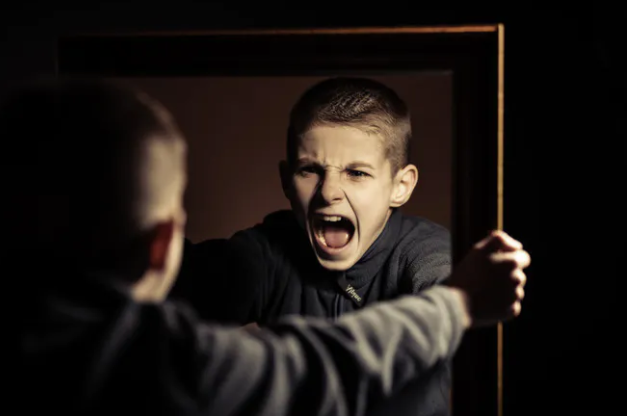A traditional method for determining your child’s success is “comparison.” You equate your child’s grades to those of other students to decide if your child’s academic accomplishments are “average,” “better,” or “excellent.” Then we revert to using the accomplishments of other children to inspire our kids.
Some parents compare their children to other children. Parents’ motivation is to challenge their child and foster a sense of challenge in him or her.
If you have a sibling, odds are you were not exposed to comparisons at home. Comparison among siblings is standard in households that it isn’t even given a second thought or contemplated. In a competitive environment where parents often equate their children to others, the analogy is bound to come home.

Kids benefit from a competitive spirit because it motivates them to do and be successful. However, teaching them to be better than other kids can be problematic at times. It leaves deep emotional scars that are difficult to repair and can lead to hostility, hatred, and resentment. Many of these characteristics are harmful to children’s gradual development and improvement.
You don’t mean to hurt your kids, but these unintentional comments do more damage than good. Comparing your children to their siblings or others causes stress for both you and your child and is a pointless task, but the temptation is difficult to avoid.
Here is why you should avoid comparing your child, the adverse effects of comparing them, and what you should do instead.
Why Should You Stop Comparing Your Child With Other Children?
Parents want to see their children succeed in all aspects of their lives, but they fail to realize that they can never accomplish this by comparing children. It is common practice for parents to go to great lengths to improve their child’s results.
They believe that this would improve children’s learning and skills. On the contrary, it harms their trust level. Parents equate their children to others solely to instill a competitive spirit in their children.
They will believe that it is the best way to bring out their children’s latent ability and capabilities for them to succeed over others. However, parents must recognize that comparison is not the only motivator for their children to perform at their best.
When judgments, desires, or disappointments outweigh similarities, the consequences can last for years and even form people’s identities. Judgement free parenting will lead to kids becoming happier and more confident.
When a child is growing up and trying to find his or her place in the world while coping with problems at school and in society, he or she may have much more to think about as strain arises at home as well.
Since no two kids are the same, it does not make sense to compare them. They have different abilities, interests, mature at different rates, and have different strengths. In practice, parents may either develop or destroy their child’s trust and self-esteem. Both are expressing dissatisfaction with their success, and boasting about his accomplishments is fitting.
Effects On A Child When Parents Compare Them With Other Children
1.Lowers Self-esteem
Children always look up to their parents and believe what they say. When a parent asks a child to be more like his or her sibling/ friend, the child’s message is that “you are not good enough”.
Comparison is the basis of broken self-esteem. What appears to be a casual comment could become a verse in kid’s minds. With the over use of social media also affects kid’s self esteem.
When children begin to believe they are incapable of performing well, their development is slowed. They will still believe that they will never be able to live up to their parents’ standards.
When children are consistently compared to other children, they begin to feel inferior to others. Instead of improving, many children will give up and become too scared to try new things.
While no parent intends to make their child feel inferior, the constant comparison will cause your child to feel unworthy. Low self-esteem can harm your child’s mental health, which in turn can harm their overall life.
When children are compared to other children, their self-esteem suffers. If a child believes they are “good for nothing,” their success will suffer even more.
2. Increases Stress And Anxiety
Constantly comparing your child to others is bound to stress them out. They will feel compelled to overwork themselves to win your approval, which is detrimental to their health.
They will feel pressed to prove that they are as good as the child to whom you are comparing them, which will leave them drained and exhausted.
Parents should not put excessive pressure on their children to succeed and should not place unreasonable expectations on them. Instead, they should work with children to find answers and help them overcome their reservations.
When compared to other children, a child is disproportionately stressed. Anxiety and even insomnia are caused by comparison. When a child underperforms, comparing him or her to others is not the solution.
The pressure they feel to please you will stress them out to the point that it interferes with their academic performance and other aspects of their life.
3.Fosters Resentment
When children are compared to their relatives, mates, or cousins, they feel uncomfortable and attempt to isolate themselves from their parents. It may also contribute to behavioral or developmental issues as they get older.
When children are continually compared, they can develop a hidden hatred and reluctance towards other children. This will cause him to act aggressively and pick fights.

They will also be resentful towards their parents. Children want to be loved and appreciated for their efforts. But when you ignore their efforts and focus on results, they become discouraged to try more.
They will be hateful by thinking that you do not care for them. Kids will act aggressively towards their parents or siblings. They may also intentionally hurt the child that they are compared to.
The resentment that kids have fostered can also bring forward unhealthy competition. For example, a child may cheat on a test to get better marks on their test. They may intentionally ruin their sibling’s project to make themselves look better in front of their parents.
4.Suppresses Their Interests
When children are overlooked and are continually compared to others, their creativity does not blossom, and they ultimately lose both their ability and talent.
For example, when your child spends more time sketching and prefers them to practice football, they are in a difficult situation. If their painting talent is unappreciated, and they go half-heartedly to play football.
Your kid will follow your instructions because they are scared. They think that you will compare them to their friends or cousins. They will follow through without actually loving or appreciating what you are teaching them.
When a child is compared to their siblings, they follow in the footsteps of a sibling. He or she will be unable to pursue the plethora of opportunities and expectations available. When there are no similarities, a child is free to set his or her own goals, milestones, and decisions, allowing him or her to explore and choose more freely.
For example, an older sibling who excelled in music lessons, science, or the arts should not be the reason why a younger child is compelled to follow in their footsteps. To limit a child, by comparison, is to limit the child’s limitless prospects and possibilities.
It will lead to them not discovering their talents or interests in a quest to please you.
5.Social Withdrawal
When children are compared to their relatives, mates, or cousins, they feel uncomfortable and attempt to isolate themselves from their parents. It may also contribute to behavioral or developmental issues as they get older.
When a child becomes tired of being compared, they will also begin to withdraw completely. It’s possible that they believe that no matter how hard they try, someone else will outperform them so that they won’t bother.
You will notice that your child has given up and no longer attempts something. This can be extremely harmful to your child.
If children are constantly mocked and taunted by their parents, they will eventually begin to avoid public contact in their parents’ presence.
They might also begin to withdraw from you because they do not want to hear you speak about other children they believe are better than them. Your child can stop talking to you and withdraw entirely from your life.
They also feel that they are not a valued member of the family. The comparison makes them feel like they have disappointed you. They avoid social interactions with family members to avoid embarrassing you.
This withdrawal can also be a result of resentment, as mentioned above. Parents who often compare their children with others are distanced from them when their child becomes an adult. The kid will avoid their parents to avoid embarrassment.
6.Rivalry With Siblings
When you equate, rather than praise, the other child to your child, your child will begin to despise his sibling. As a result, he can act violently, pick fights, tease, and even hit each other.
You are also sending the message that the kid who performs better is preferred and valued more.
Another risk of child comparison is the gap it can cause between siblings, whether visible or not. Siblings who are frequently compared can develop feelings of superiority and inferiority, eventually leading to a power struggle between them.
Such a power struggle is often not freely shared, which may lead to more harm because the child can form skewed views and opinions about the sibling. Eventually, a child’s relationship with his or her sibling is severed, as is the child’s relationship with the rest of the family.
7.Rebellious Attitude
When the child’s talents or achievements are consistently ignored, they will stop trying to please you because you prefer the other child with more “important” achievements. They may be influenced with what they see other people doing for instance influencers of social media.
When a child is unable to cope with the strain, he or she can revolt instead. Some children can purposefully perform poorly in academics or fall far behind their peers.

When they see that their worth depends on their sibling’s success, some children will purposefully perform poorly in academics or withdraw from the study. When a child’s output is not good enough due to a higher standard set by a sibling, the child will choose to give up on trying entirely and end up rebelling instead.
They may also try other tactics to succeed rather than working hard. Your children will go against your decisions to get your attention.
What Should You Do Instead?
- Tell them you are proud of their accomplishments and inspire them to keep working hard without comparing their achievements to others. This will not only boost their self-esteem, but it will also make it easier for them to embrace themselves as they are.
- Find out what works best to motivate your child to work harder without making them feel inferior. Your child will feel less anxious as a result, and they will perform better as a result.
- If you believe your child can do better in school, try sitting them down and asking them what you can do to support them without bringing up their friend who gets better grades.
- Tell them you know they can do better and find ways to make them work harder without making them feel inferior to others. And anyway, every child is different and learns at a different rate.
- Maintaining open contact in the family will allow children to speak up when they believe they are being compared to others.
- Instead of forcing your children to be alike, celebrate their differences. Communicate the value of maintaining an individual identity so that even though no one else is comparing, they do not compare themselves.
- When your child did not do well in school, please do not make them feel like they have let you down or humiliated you. Always be there for your kids. Engage in a pep talk, inspire them to practice more, and still publicly acknowledge their efforts.
- Do not let your pride in one sibling cause disappointment in the other. Take care to strike a balance between the two.









